Filter by
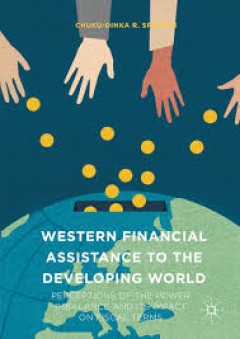
Western Financial Assistance to the Developing World Perceptions of the Powe…
This unconventional book addresses the imbalance of power between countries that give and receive funds for international financial development, with particular attention to the outcomes and impacts of this imbalance on recipient countries. It provides an in-depth analysis of the perceptions that population segments of recipient countries have of the power plays inherent in giving and receiving…
- Edition
- -
- ISBN/ISSN
- 978-1-137-58399-4
- Collation
- -
- Series Title
- -
- Call Number
- -

The spatial economy :cities, regions, and international trade
Originally published: 1999.The authors show how a common approach that emphasizes the three-way interaction among increasing returns, transportation costs, and the movement of productive factors can be applied to a wide range of issues in urban, regional, and international economics.Since 1990 there has been a renaissance of theoretical and empirical work on the spatial aspects of the economy--…
- Edition
- -
- ISBN/ISSN
- 9780262273329
- Collation
- 1 online resource (xiii, 367 pages) :illustrations
- Series Title
- -
- Call Number
- -

The working landscape :founding, preservation, and the politics of place
Based on the author's Ph. D. thesis, Harvard University, 2000.In America today we see rampant development, unsustainable resource exploitation, and commodification ruin both natural and built landscapes, disconnecting us from our surroundings and threatening our fundamental sense of place. Meanwhile, preservationists often respond with a counterproductive stance that rejects virtually any chang…
- Edition
- -
- ISBN/ISSN
- 9780262269803
- Collation
- 1 online resource (xvi, 425 pages).
- Series Title
- -
- Call Number
- -
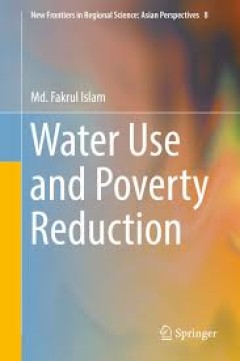
Water Use and Poverty Reduction
This book is the outcome of empirical research on the sharing of water of the Teesta River, which flows through India and Bangladesh. The main purpose is to show how regional cooperation between India and Bangladesh regarding sharing of Teesta River water can ensure optimal benefits for people living in the area of the Teesta Basin located in the two countries. The author takes an interdiscipli…
- Edition
- -
- ISBN/ISSN
- 978-4-431-55172-0
- Collation
- -
- Series Title
- -
- Call Number
- -
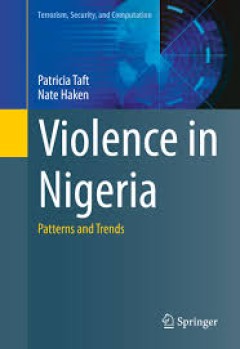
Violence in Nigeria Patterns and Trends
This book takes a quantitative look at ICT-generated event data to highlight current trends and issues in Nigeria at the local, state and national levels. Without emphasizing a specific policy or agenda, it provides context and perspective on the relative spatial-temporal distribution of conflict factors in Nigeria. The analysis of violence at state and local levels reveals a fractal pattern of…
- Edition
- -
- ISBN/ISSN
- 978-3-319-14935-6
- Collation
- -
- Series Title
- -
- Call Number
- -

Vertebrates and Invertebrates of European Cities:Selected Non-Avian Fauna
Vertebrates and Invertebrates of European Cities: Selected Non-Avian Fauna is the first known account of the vertebrate and invertebrate fauna of several cities in Europe and throughout the rest of the world. It excludes birds, which are described in a companion volume. The book contains eleven chapters about nine cities distributed throughout Europe. The chapters start with the history of the …
- Edition
- -
- ISBN/ISSN
- 978-1-4939-1698-6
- Collation
- -
- Series Title
- -
- Call Number
- -

The Makassar Annals
The Makassar annals Translated and edited by William Cummings Beginning in the 1630s, a series of annalists at the main courts of Makassar began keeping records with dated entries that recorded a wide variety of specific historical information about a wide variety of topics, including the births and deaths of notable individuals, the actions of rulers, the spread of Islam, trade and diplomacy, …
- Edition
- Ed. 1
- ISBN/ISSN
- 9789004253629
- Collation
- 368
- Series Title
- Biblioteca Indonesica, 35
- Call Number
- 900 MAK m
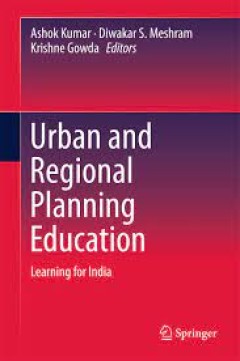
Urban and Regional Planning Education Learning for India
This is the first volume exclusively dedicated to planning education, with a focus on India and learning from global experiences for India. Prior to the 1990s, planning education in India was largely confined to national and local economic concerns. Within a globalized scenario, such pedagogies and theories have become outmoded. With new concerns emerging in planning, new pedagogical tools and …
- Edition
- -
- ISBN/ISSN
- 978-981-10-0608-1
- Collation
- -
- Series Title
- -
- Call Number
- -
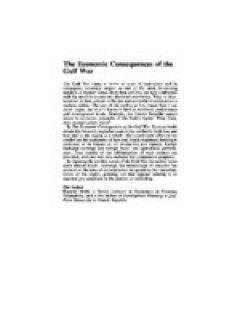
The Economic Consequences of the Gulf War
The Iran-Iraq War were one of the longest and most devastating uninterrupted wars amongst modern nation states. It produced neither victor nor vanquished and left the regimes in both countries basically intact. However, it is clear that the domestic, regional and international repercussions of the war mean that 'going back' is not an option. Iraq owes too much to regain the lead it formerly hel…
- Edition
- Ed. 1
- ISBN/ISSN
- 9780415052955; 9781138968226
- Collation
- -
- Series Title
- -
- Call Number
- 330 MOF e
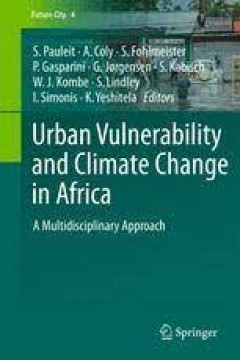
Urban Vulnerability and Climate Change in Africa A Multidisciplinary Approach
Urbanisation and climate change are among the major challenges for sustainable development in Africa. The overall aim of this book is to present innovative approaches to vulnerability analysis and for enhancing the resilience of African cities against climate change-induced risks. Locally adapted IPCC climate change scenarios, which also consider possible changes in urban population, have been …
- Edition
- -
- ISBN/ISSN
- 978-3-319-03982-4
- Collation
- -
- Series Title
- -
- Call Number
- -
 Computer Science, Information & General Works
Computer Science, Information & General Works  Philosophy & Psychology
Philosophy & Psychology  Religion
Religion  Social Sciences
Social Sciences  Language
Language  Pure Science
Pure Science  Applied Sciences
Applied Sciences  Art & Recreation
Art & Recreation  Literature
Literature  History & Geography
History & Geography